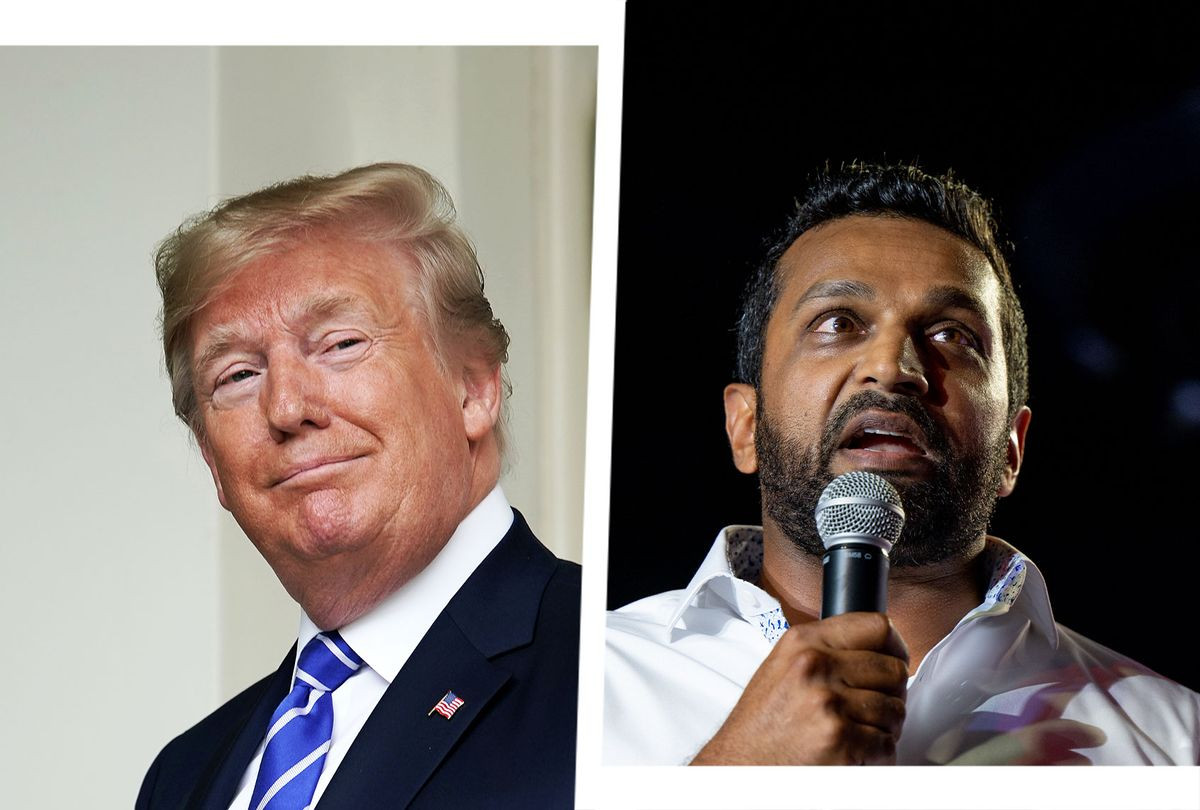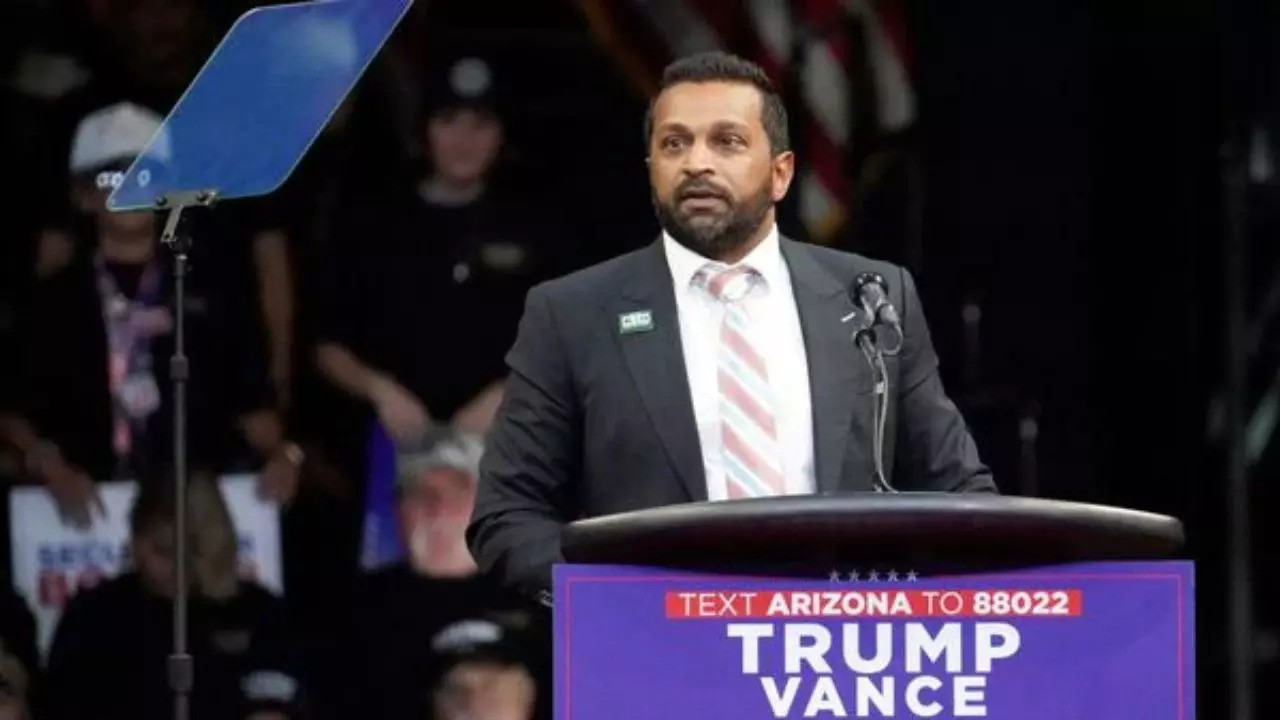Trump's Controversial Choice for FBI Director: Kash Patel
President-elect Donald Trump's decision to nominate Kash Patel as the next director of the Federal Bureau of Investigation (FBI) has sent shockwaves through the political landscape. The appointment, announced on social media, immediately ignited a firestorm of debate, with critics expressing serious concerns about Patel's qualifications, past statements, and potential conflicts of interest.
Patel's Background and Controversial Statements
Patel, a former Department of Justice prosecutor and staunch Trump loyalist, has a long history of criticizing the Justice Department and the FBI. He's known for his outspoken support of Trump and his willingness to publicly attack his political opponents. His views align with Trump's ongoing battles with the justice system. His appointment raises concerns about potential partisan influence over the FBI’s investigations, a critical institution known for its independence. Patel has previously voiced intentions to fundamentally restructure the FBI, reducing its size and closing its Washington headquarters, a vision that has alarmed many. He views the FBI as a bastion of the “deep state”.
Patel's Views on the Media and Government Officials
Patel has not shied away from publicly expressing his disdain for both the media and certain government officials. In past interviews, he pledged to investigate and prosecute those he perceives as enemies of Trump and even spoke of targeting journalists. This rhetoric is deeply troubling to those who value a free press and the integrity of the justice system. These comments raise alarm about the potential for abuse of power, targeting political adversaries, and undermining the principles of due process. His aggressive stance threatens established journalistic norms, casting a shadow over the vital role the media plays in holding power accountable. This raises serious questions about the potential for political interference in investigations and potential retaliation against perceived enemies.
Patel's Plans for the FBI
Patel's public pronouncements concerning his plans for the FBI have been equally unsettling. In addition to expressing his intentions to dramatically scale back the agency, Patel has also called for the dismissal of top-ranking officials and the declassification of sensitive government documents. Such actions could severely destabilize the FBI's ability to effectively perform its national security duties and maintain trust with the public. His public statements raise deep concerns about his capacity to lead and uphold the integrity of the Bureau.
Potential for Conflict of Interest
Given Patel's deep ties to Trump, and his vocal support for the former president, critics are concerned that he may not be able to act impartially as FBI director. He could prioritize loyalty to the president over upholding the rule of law. The lack of transparency surrounding the selection process and the candidate's qualifications exacerbates these anxieties. The choice risks jeopardizing the FBI’s credibility, independence, and impartiality, especially when examining potential conflicts of interest.
The Senate Confirmation Process
Patel's nomination must now be confirmed by the Senate. This is expected to be a contentious process, with senators from both sides of the aisle expressing strong opinions about his suitability for the position. Despite the significant backlash, the likelihood of Senate confirmation remains uncertain, dependent on party divisions and individual senators’ positions. If confirmed, Patel's tenure as FBI director is likely to be filled with controversy and scrutiny.
Reaction to Trump's Announcement
The announcement of Patel's nomination was met with swift condemnation from several prominent Democrats and some Republicans who expressed concerns about his qualifications, past statements, and potential conflicts of interest. The FBI itself issued a statement emphasizing the agency's continued dedication to its mission of protecting the American people. Even some Trump’s advisors voiced concerns about the selection; the incoming president’s determination to install Patel stands in stark contrast to earlier reactions to potential FBI leadership choices from other members of his administration.
A Threat to the Rule of Law?
Many legal experts express concern that Patel's appointment could seriously undermine the rule of law and the independence of the FBI. His past statements and actions suggest a willingness to prioritize political loyalty over institutional integrity, raising alarms about potential abuses of power and the manipulation of investigations for partisan gain. If confirmed, Patel’s leadership could significantly alter the FBI’s culture, potentially stifling investigations and chilling dissent. This would harm the agency’s ability to function independently and effectively uphold the law.
The Future of the FBI
The future of the FBI under Patel’s leadership remains highly uncertain and a source of deep concern for many. His pronouncements suggest a potential for radical change, marked by political influence and a departure from the Bureau’s long-held commitment to impartiality and the rule of law. This underscores the deep divisions within American politics, and the potential for significant damage to one of the nation’s most important law enforcement institutions. The appointment is a significant development with far-reaching implications for the future of justice and law enforcement in the United States.
Uncertain Times Ahead
The upcoming Senate confirmation hearings will undoubtedly be pivotal in shaping public perception and determining the trajectory of Patel's potential leadership. The outcome remains uncertain, given the deep partisan divisions within the Senate, potentially leading to a prolonged confirmation process or rejection.
The situation is far from resolved, and the coming days and weeks will undoubtedly bring further developments and reactions to this highly controversial appointment. This will be a test of the Senate's role as a check on executive power and a reflection of the deeply divided political landscape in the United States. The consequences will extend beyond the immediate political realm, impacting the integrity of institutions and the future of American democracy. The situation bears close watching as its implications continue to unfold.

















